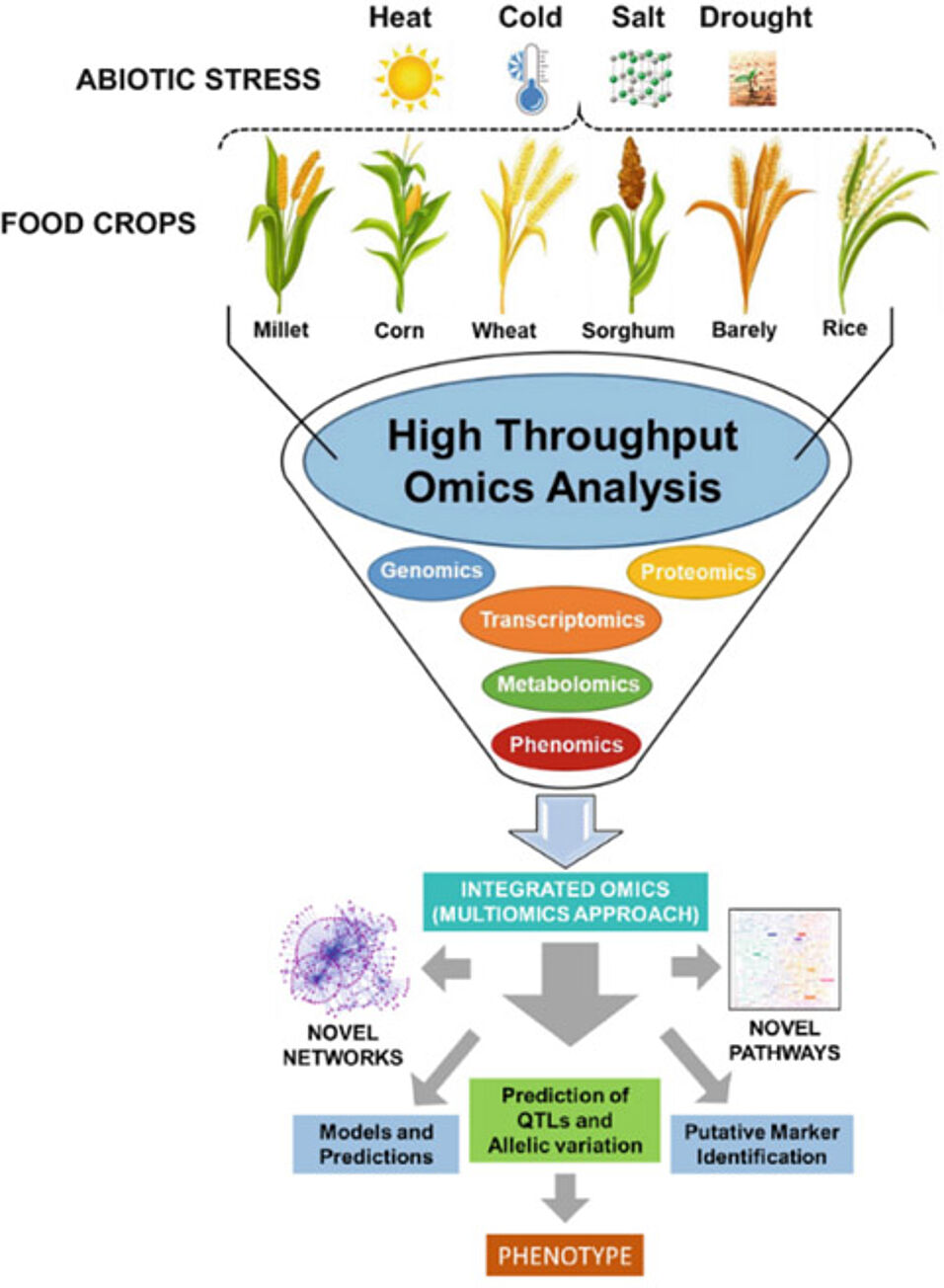The growing food demand in the world due to the increasing population and decreasing availability of agricultural land requires new crops that are more productive and resistant to harsher environmental conditions. Thus, rapid and effective exploration, identification, and validation of an important trait, gene, molecular mediator, and protein interaction are important for improving crop yield and quality in the near future.
Integrating genomics, transcriptomics, proteomics, metabolomics and phenomics enables a deeper understanding of the mechanisms underlying the complex architecture of many phenotypic traits of agricultural relevance. Here, we cite several relevant examples that can appraise our understanding of the recent developments in omics technologies and how they drive our quest to breed climate-resilient crops.Large-scale genome resequencing, pangenomes, and genome-wide association studies aid in identifying and analysing species-level genome variations. RNA-sequencing-driven transcriptomics approach has provided unprecedented opportunities for performing crop abiotic and biotic stress response studies. Additionally, the high-resolution proteomics technologies necessitated a gradual shift from the general descriptive studies of plant protein abundances to large-scale analysis of protein-metabolite interactions.
Especially, advent in metabolomics is currently receiving special attention, owing to the role metabolites play as metabolic intermediates and close links to the phenotypic expression. Further, the high-throughput phenomics approach opened new research domains such as root system architecture analysis and plant root-associated microbes for improved crop health and climate resilience.
Overall, integrating the PANOMICS approach to modern plant breeding and genetic engineering methods ensures the development of climate-smart crops with higher nutrition quality that can sustainably meet the current and future global food demands.
Read the full text here:

